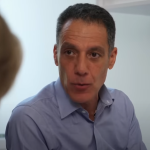Careers in Information Policy: Technologists’ Contributions to Information Policy
Meet the technologists on the forefront of global information policy debates. Hear about their work on issues of national security, cryptography, privacy, cybersecurity, and more. Find out how you can follow in their footsteps and participate in shaping public policy around information and communication technologies.
School of Information students and alumni are invited. Refreshments will be served.
Panel
Emily Barabas (MIMS ’12)
Policy Analyst
Center for Democracy and Technology
Peter Eckersley
Technology Projects Director
Electronic Frontier Foundation
Nathan Good (Ph.D. ’09)
Chief Scientist & Principal
Good Research, LLC
Ashkan Soltani (MIMS ’09)
Independent researcher & consultant
Moderator:
Nick Doty
School of Information Ph.D. student
Emily Barabas is a policy analyst at CDT, where her work focuses on global internet policy and human rights.
Prior to joining CDT, Emily was a graduate student researcher at UC Berkeley's School of Information. She researched issues related to privacy, security, and trust in technical systems, as well as intellectual property online. Previously, she spent three years working on open government issues at the New York City Mayor's Office of Operations, focused on using the 311 information system to improve public access to health and human services. She began her career working in community development, serving as a project manager of affordable housing development at Fifth Avenue Committee, a community-based organization in Brooklyn, NY.
Emily holds a Master of Information Management and Systems from UC Berkeley and a B.A. in public policy from Brown University.
Peter Eckersley is technology projects director for the Electronic Frontier Foundation. He keeps his eyes peeled for technologies that, by accident or design, pose a risk to computer users' freedoms — and then looks for ways to fix them. He explains gadgets to lawyers, and lawyers to gadgets. Peter's work at EFF has included privacy and security projects such as Panopticlick, HTTPS Everywhere, SSDI, and the SSL Observatory; helping to launch a movement for open wireless networks; fighting to keep modern computing platforms open; and running the first controlled tests to confirm that Comcast was using forged reset packets to interfere with P2P protocols.
Peter holds a Ph.D. in computer science and law from the University of Melbourne; his research focused on the practicality and desirability of using alternative compensation systems to legalize P2P file sharing and similar distribution tools while still paying authors and artists for their work. He is an affiliate of the Center for International Security and Cooperation at Stanford University.
Nathan Good is principal of Good Research. He studies usable networked systems and how to create devices and services to be simple and respectful of people’s privacy. He has worked at PARC, Yahoo, and HP research labs. At Berkeley, he worked with TRUST and the Samuelson Law & Technology Clinic and was a member of the California Secretary of State’s 2007 Top-to-Bottom Review of Electronic Voting Systems. Nathan has published extensively on user experience studies, privacy, and security related topics. His research has been reported on in the New York Times, CNN, and ABC, and he has testified on his research before the House, Senate, and FTC. Nathan has a Ph.D in information and an M.S. in computer science from UC Berkeley
Ashkan Soltani is a technology consultant and researcher, whose research examines the prevalence of online tracking and exposes practices designed to circumvent consumer privacy choices. Journalists and policymakers frequently cite his research on online tracking, data collection and privacy.
His 2009 KnowPrivacy projct led to his role as the primary technical consultant for the Wall Street Journal: What They Know series, which was a finalist for 2012 Pulitzer Prize and the winner of the 2012 Scripps Howard Award. Ashkan has appeared as an independent witness before both the Senate Commerce and Senate Judiciary Committees on The State of Online Consumer Privacy and Protecting Mobile Privacy: Your Smartphones, Tablets, Cell Phones and Your Privacy.
Ashkan has a master’s degree from UC Berkeley’s School of Information and previously served as a staff technologist in the Division of Privacy and Identity Protection at the Federal Trade Commission, where he helped architect the Do Not Track initiative. He is currently working as the Washington Post’s in-house technology consultant for their analysis of the NSA files.
Nick Doty is a Ph.D. student at the School of Information, where he studies software engineering and multistakeholder processes and their effects on Internet privacy. He also works on privacy in web standards for the World Wide Web Consortium.







